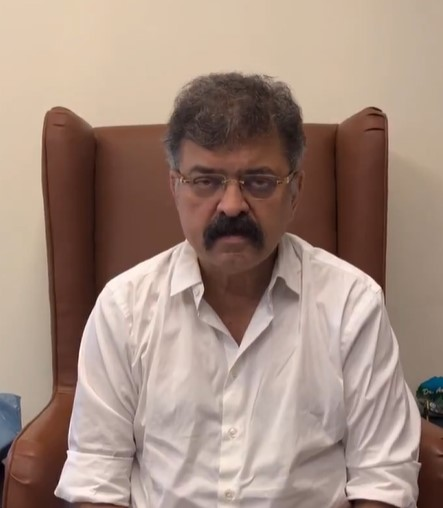

Mumbai, Aug 4 (IANS) In wake of the Supreme Court rebuking Leader of the Opposition in Lok Sabha Rahul Gandhi over his remarks on the Indian Army during the Bharat Jodo Yatra in December 2022, Maharashtra’s NCP-SP MLA Jitendra Awhad on Monday said the top court should question the government, not those raising concerns about national security.
Awhad voiced his opposition to the court’s stance, suggesting it risked curbing free speech.
Speaking to IANS, Awhad said, “Will the Supreme Court now teach us where we are allowed to speak? Will the freedom of speech guaranteed by the Constitution also be taken away? Several villages’ names have been changed in Arunachal Pradesh. Did we do that? Why aren’t those changes questioned?”
This comes after the Supreme Court questioned Rahul Gandhi’s 2022 statement made during the Bharat Jodo Yatra, where he claimed that China had occupied 2,000 square kilometres of Indian territory and was “thrashing Indian soldiers in Arunachal Pradesh”.
The court paused defamation proceedings against Gandhi but made strong observations, questioning his credibility and patriotism.
Awhad, however, stood by Gandhi’s right to speak out.
“I don’t want to comment directly on what the court has said, but what happened in Galwan Valley should be investigated. Why is the court asking us for evidence? The responsibility lies with the government. The court should ask them, not those who question them,” the Maharashtra lawmaker told IANS.
“When we say Nathuram Godse was a terrorist, should we be asked for proof? Some facts are self-evident.”
During Monday’s hearing, a bench of Justices Dipankar Datta and Augustine George Masih asked Gandhi: “How did you know about 2,000 km being annexed by the Chinese? Were you there? Do you have any credible material?”
“If you’re a true Indian, you wouldn’t say such things,” it added.
The court also questioned Gandhi’s choice of platform.
“You are the Leader of the Opposition. Why don’t you raise these concerns in Parliament?” the bench said.
Rahul Gandhi had approached the Supreme Court after the Allahabad High Court, on May 29, dismissed his plea challenging the summoning order and criminal complaint in the case. Gandhi argued the defamation case was politically motivated and intended to silence criticism.
The High Court, however, held that free speech does not include the right to defame the Indian Army, adding that such statements could not be protected under constitutional guarantees.
–IANS
jk/vd
